
Losing your hearing can be a frightening thing. Hearing loss can also be embarrassing, frustrating, and debilitating. Fortunately, when steps are taken to accurately diagnose hearing loss, an effective, customized treatment approach can help. In this article, we’ll explore how hearing loss is diagnosed. You’ll learn what symptoms to look for, how often you should have your hearing tested, and what to expect during an audiology exam.
With the right care, you can easily hear your loved ones again, fully engage in conversations in loud environments, and navigate day-to-day communications with ease.
Detection Precedes Specific Diagnosis
There are different types and causes of hearing loss, but in all cases, the earlier the condition is diagnosed the sooner you can get the necessary treatment. In many cases, you or a loved one may be the first to notice symptoms of diminished hearing, such as difficulty communicating. If not, hearing loss will likely only be detected during a hearing exam performed by an audiologist, either during a routine screening or upon referral by another medical professional.
Below, we provide more details of some of the most common ways hearing loss is most often detected for the first time.
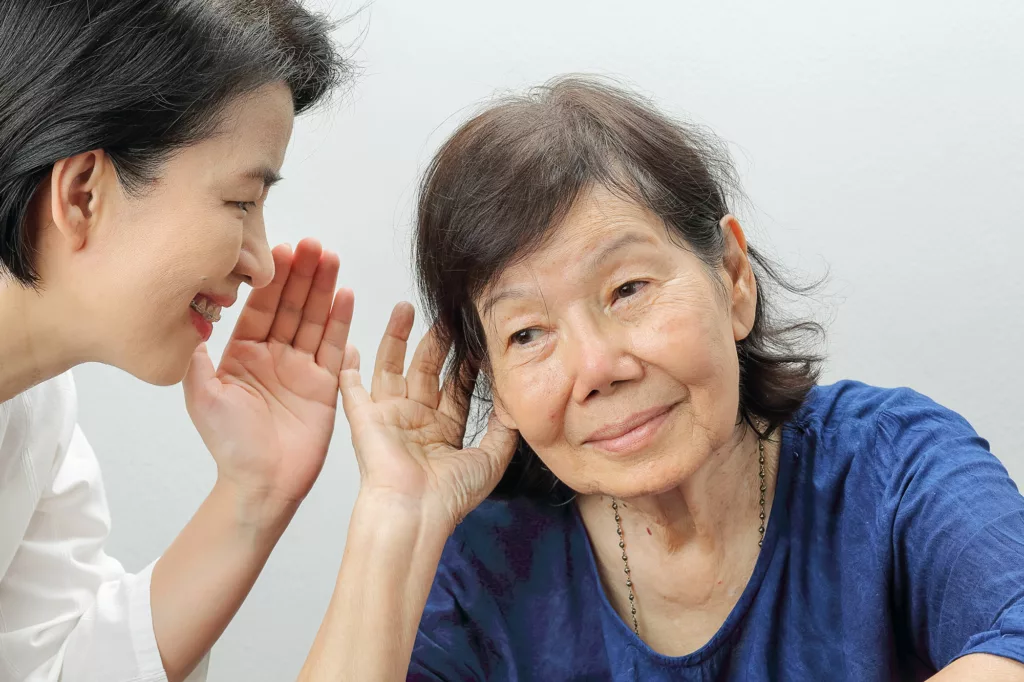
Patients Notice Symptoms
Oftentimes, people experience the symptoms of hearing loss gradually as the condition worsens over time. Such is often the case with the two most common causes, age-related and noise induced hearing loss (NIHL). It’s likely that you or your loved ones will be the first to notice a diminished capacity for hearing and one or more of the following symptoms:
- Difficulty understanding conversations in loud or crowded environments
- Missing words and saying “what?” often
- Trouble hearing on the phone
- Needing higher volume on tv, stereo, etc. than others
- Having to concentrate harder to hear others
- Mishearing parts of words
- Not hearing sounds that others near you report hearing
Other types of hearing loss that develop more suddenly are also, generally, first noticed by the patient, and can be more pronounced, because symptoms come on quickly. For example, being unable to hear after a blow to the head, when suffering from severe head congestion, or as a side effect to a medication. If you suspect you or a loved one has hearing loss, it is crucial to contact your care provider, or encourage your loved one to do so, as soon as possible.
Routine Annual Hearing Exams
For adults aged 18-40, professionals recommend routine exams to monitor hearing capacity every three to five years, even if no symptoms of hearing loss are present. People 60 years of age and older are advised to have annual hearing exams, whether or not they are experiencing symptoms. These appointments help track any trends or changes in your ear and hearing health. Older adults and those working in loud environments are more likely to experience gradual hearing loss, but getting a baseline and an ear health assessment is important for anyone, and at any age.
Regular hearing exams are essential to the longevity of your hearing health and early detection of signs of hearing loss. These visits can bring better aural clarity for a fuller, richer life. For hearing aid users, with the information gathered through these exams, adjustments can be made to your devices to ensure you are hearing at your absolute best.
Audiology Referral from Medical Doctor
Hearing loss can be caused by trauma, certain medications, or infection. It is important to report any of these conditions to a medical doctor, especially if you notice a change in your hearing during or immediately following one of these events. In these cases, your medical doctor will conduct a preliminary hearing test and refer you to an audiologist or ear nose and throat (ENT) doctor for a more thorough exam, if they believe your hearing is at risk.
Here are some of the most common reasons a medical doctor may refer you to an audiologist for a more thorough hearing exam.
Head Injury
A blow to the head, especially to the jaw or side of the face, can result in the auditory ossicles, or “hearing bones,” to break or become dislocated. If the loss is not severe, and the patient is in shock from the trauma, it may be the medical staff who first notice an issue.
Medication Side Effects
Medication induced hearing loss, known as ototoxicity, is caused by certain medicines or chemicals that harm the inner ear. Patients on these medications can suffer side effects, such as hearing loss or tinnitus, which can present as persistent or intermittent ringing, humming, buzzing, or roaring in the ears, hearing loss, or trouble balancing.
Severe Ear Infection, Congestion, or Other Pressure Changes
Infections of the ear canal or middle ear, whether it is the primary symptom, or a secondary infection can create increased pressure on the eardrum. The eardrums can also be damaged from increased air pressure when flying or by other sudden changes in altitude, or from high winds.
Diseases, Viruses and other Conditions
Diseases such as meningitis, shingles, and Ménière’s disease (an inner ear disorder) can also cause hearing loss. The treating physician will be on the lookout for such complications, and advise patients to do the same. Hearing loss can also stem from a high fever, diabetes, hypertension, and stroke.
Patients experiencing any change in their hearing, associated with any of the above, should report the symptoms to their physician immediately.
Diagnostic Steps Taken by a Hearing Loss Professional
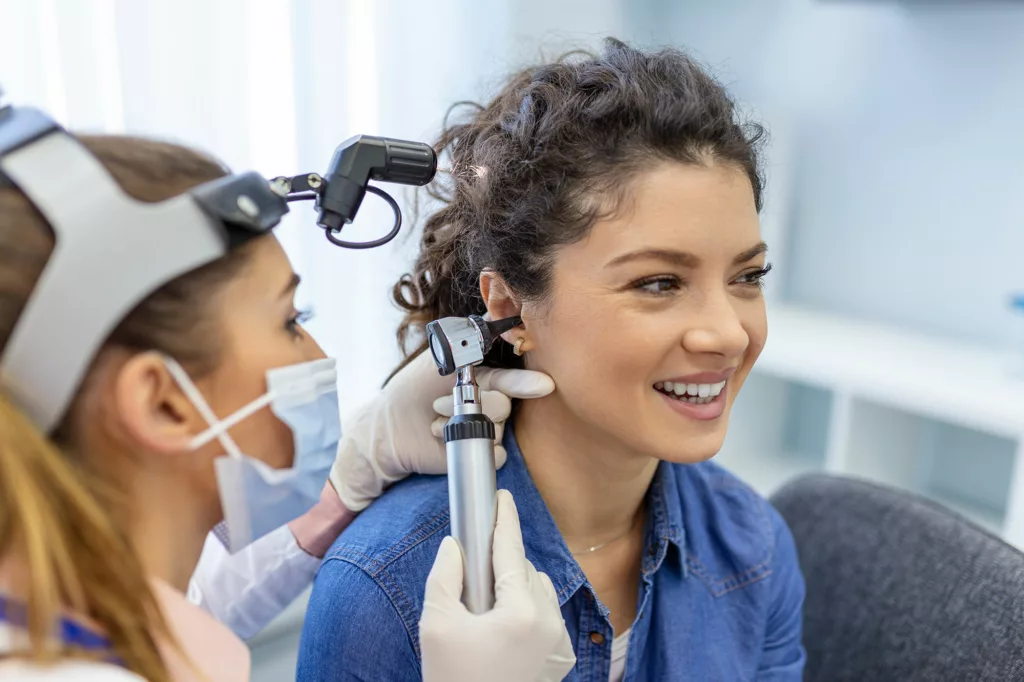
Once hearing loss is detected, an audiologist will determine the level and type of loss, to provide an accurate diagnosis and treatment plan. Treatments may include more than just hearing aids, and the hearing aids will vary depending on your unique situation.
How do doctors test for hearing loss? Only a thorough evaluation of your aural acuity by an auditory professional can result in the most effective, comprehensive treatment. The steps taken to accurately diagnose hearing loss are outlined below.
Health Questionnaire
Your hearing health professional begins with gathering information about your overall health, lifestyle, and the levels of sounds or noise encountered in your career and leisure activities. You will be asked questions verbally, via a printed questionnaire, or online, as prompted in a pre-appointment app. These questions will gather all the pertinent information that will help in your individual diagnosis.
The following information will be requested:
- Your own experience of your hearing and any symptoms you have noticed
- Health factors such as smoking, diabetes, high blood pressure, stroke, etc.
- History of illnesses that have been known to cause hearing loss
- Your exposure to loud noises during work and recreational activities
- List of ototoxic medications you are taking or have taken
- Family history of hearing loss
Physical Exam
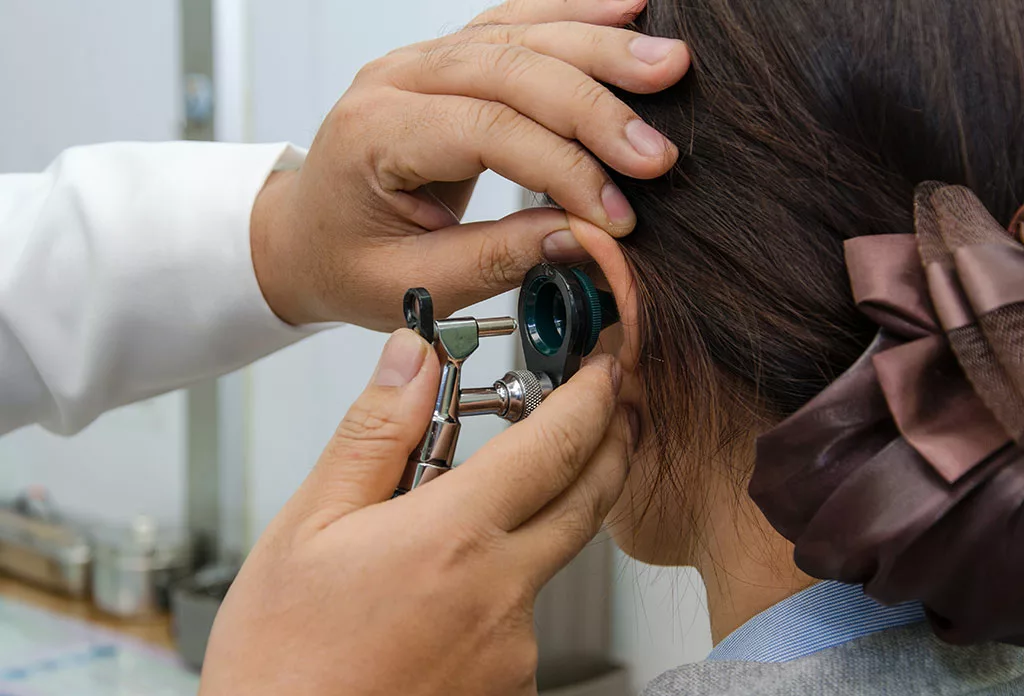
The first things an audiologist, or any medical professional, will do before testing hearing are a physical examination of the external ear and a look into the ear with an otoscope. This is to first rule out any obvious external damage and assess and address any cerumen impaction, or buildup of “ear wax” that could be interfering with hearing acuity.
Measuring Loss
During the next phase of testing, you will play an active role. You will respond to tones and voices and provide feedback to the audiologist. There are no wrong answers. The results of your hearing evaluation can only be as accurate as your responses, so take a deep breath, relax, and respond naturally.
Some of the tests the audiologist might use to diagnose the extent of your hearing loss are listed below.
Pure Tone Test
This first test, typically performed in a sound booth using earbuds or headphones, will involve the audiologist presenting you with a series of pure sounds in one ear and then in the other. This test determines your pure tone threshold, which is the quietest level at which you can hear each tone.
Speech Threshold Test
During this test, you will be asked when you can hear a series of words, either spoken or recorded, to determine the softest level at which you can understand the words.
Speech Comprehension Test
To determine how well you can recognize and process various syllables, the practitioner will offer specific syllables, separately, into each ear at a volume level that has been discovered works for you.
Sound Filtering Test
In order to gauge how well you can isolate speech amid noise, you will listen to sentences spoken softly amid various levels of background noise.
Bone Conduction Test
Part of our hearing is through the bones in our head. To determine how well this type of hearing is functioning, an oscillator is typically used. This device is basically a fancy tuning fork, which is sometimes still used for this test. The oscillator receives sound, amplifies it, and converts it into a vibration that is transmitted directly through the bones to the cochlea, bypassing the ear drum. Your hearing health professional may place the oscillator on the bone behind your ear or on your forehead.
Importance of Early Detection and Diagnosis

Untreated hearing loss can result in feelings of embarrassment, frustration, anxiety, isolation, and depression. We connect with our world and with others through our senses. The loss or impairment of any these senses can hinder this feeling of connection and negatively affect your quality of life.
According to Johns Hopkins Medicine, adults with hearing loss are five times more likely to develop dementia and three times more likely to experience a fall. Hearing loss increases the risk of accidental injuries in general, due to problems with balance and other effects on the equilibrium.
Some forms of hearing loss, such as NIHL, can be prevented. In addition to protecting yourself from harm to your ears through protective gear and avoiding activities that put your hearing at risk, it’s important to get your ears examined on a regular basis.
Find a Hearing Clinic Near You
Now that you know how hearing loss is diagnosed, and the importance of early detection, there’s no time like the present to make an appointment at a hearing clinic near you. If you have experienced any recent changes in your hearing, or have not received a hearing test in over three years, don’t wait.
We encourage you to take the first step to preserve your hearing health by meeting with one of our highly experienced hearing healthcare providers at any of our hearing clinics conveniently located throughout the United States.

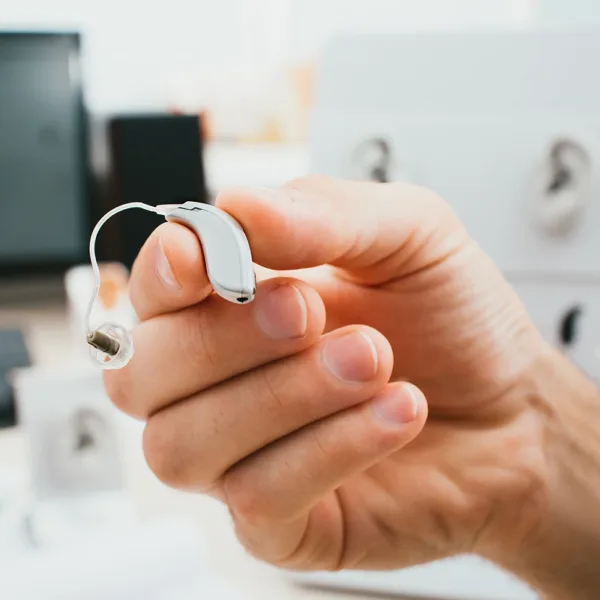
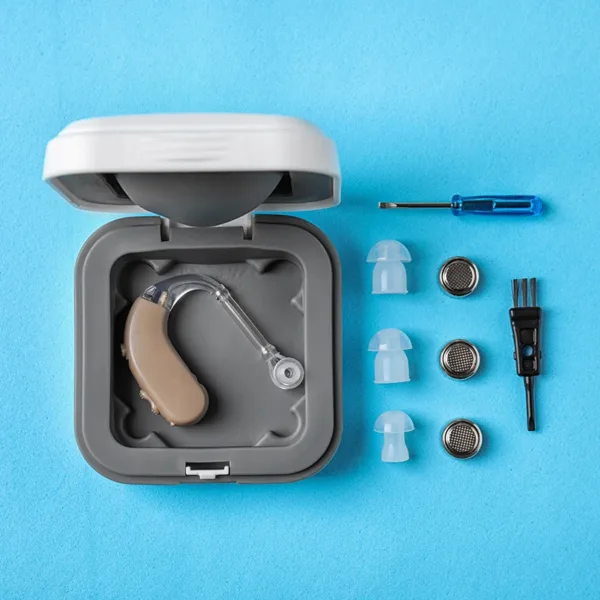
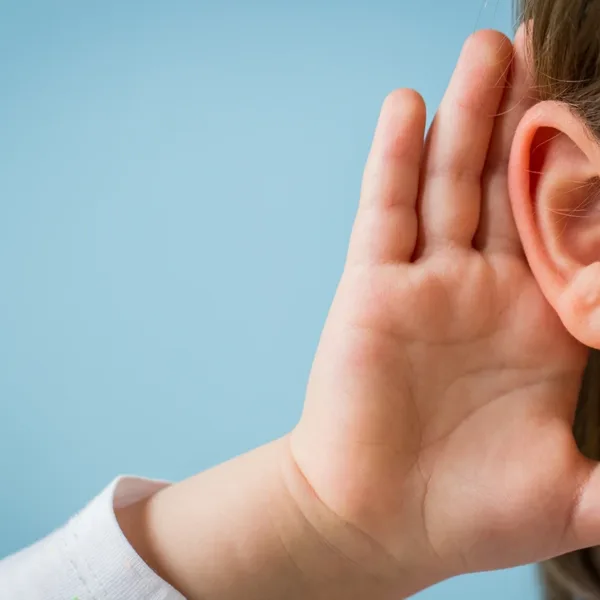



Have a question or Comment?